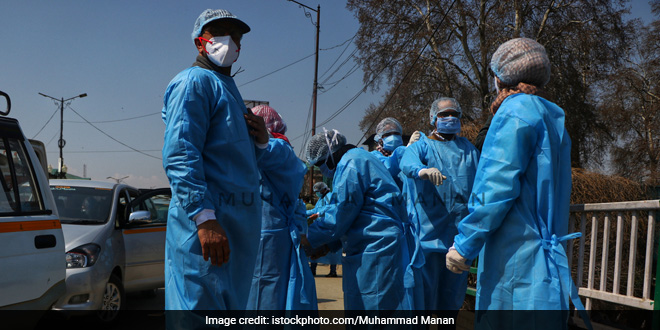Highlights
- Nurses & midwives account for nearly 50% of global health workforce: WHO
- India has about 3 million registered nurses: WHO
- 88% of nurses in India are women: WHO
New Delhi: Each year, the International Nurses Day (IND) is celebrated on May 12, on the anniversary of the birth of Florence Nightingale, the founder of modern nursing. The International Council of Nurses (ICN) celebrated the first ever IND in 1965. With the ongoing COVID-19 pandemic, nurses have also been fighting at the frontline of the response to the illness, and as per World Health Organization, ‘without nurses, there would be no response.’ WHO also states that Nurses play a critical role in health promotion, disease prevention and delivering primary and community care. They provide care in emergency settings and will be key to the achievement of universal health coverage, the organization adds.
Also Read: Into The Life Of Corona Warriors, Fighting The COVID-19 Pandemic Since The Start
Here are 10 facts you should know to understand the critical role nurses play in keeping the world healthy.
- Nurses and midwives account for nearly 50 per cent of the global health workforce, as per WHO. Women account for 93 per cent of midwives and 89 per cent of nurses.
- The global nursing workforce is estimated at 27.8 million. The world was already facing 5.9 million of nurses shortage before the COVID-19 pandemic. Close to 90 per cent of these shortages are concentrated in low- and lower middle-income countries, as per the WHO report – ‘State of the world’s nursing 2020: investing in education, jobs and leadership.’
- The largest needs-based shortages of nurses and midwives are in South East Asia and Africa, reports WHO.
- For all countries to reach Sustainable Development Goal 3 on health and well-being, WHO estimates that the world will need an additional 9 million nurses and midwives by the year 2030.
- “Achieving health for all will depend on there being sufficient numbers of well-trained and educated, regulated and well supported nurses and midwives, who receive pay and recognition commensurate with the services and quality of care that they provide,” WHO concluded in the report ‘State of the world’s nursing 2020: investing in education, jobs and leadership.
- The State of the world’s nursing 2020 also reports that India has about 3 million registered nurses, which accounts for 47 per cent of the total healthcare workers in India. This is the highest share of healthcare workers in India. 88 per cent of these 3 million nurses are women.
- Due to existing nursing shortages, the ageing of the nursing workforce and the growing COVID-19 effect, ICN estimates up to 13 million nurses could be needed to fill the global shortages and replace nurses who leave in the next few years.
- In many countries, nurses are the biggest health worker group with COVID-19 infection.
- As of 31 December 2020, more than 1.6 million healthcare workers in 34 countries have been infected by COVID-19.
- As of 31 January 2021, the cumulative number of reported COVID-19 deaths of nurses in 59 countries was 2,710, as per ICN.
Also Read: COVID Warriors: ‘Stay At Home Unless Absolutely Necessary,’ Says Piyush, A COVID Nurse From Mumbai
NDTV – Dettol Banega Swasth India campaign is an extension of the five-year-old Banega Swachh India initiative helmed by Campaign Ambassador Amitabh Bachchan. It aims to spread awareness about critical health issues facing the country. In wake of the current COVID-19 pandemic, the need for WASH (Water, Sanitation and Hygiene) is reaffirmed as handwashing is one of the ways to prevent Coronavirus infection and other diseases. The campaign highlights the importance of nutrition and healthcare for women and children to prevent maternal and child mortality, fight malnutrition, stunting, wasting, anaemia and disease prevention through vaccines. Importance of programmes like Public Distribution System (PDS), Mid-day Meal Scheme, POSHAN Abhiyan and the role of Aganwadis and ASHA workers are also covered. Only a Swachh or clean India where toilets are used and open defecation free (ODF) status achieved as part of the Swachh Bharat Abhiyan launched by Prime Minister Narendra Modi in 2014, can eradicate diseases like diahorrea and become a Swasth or healthy India. The campaign will continue to cover issues like air pollution, waste management, plastic ban, manual scavenging and sanitation workers and menstrual hygiene.
[corona_data_new]





























